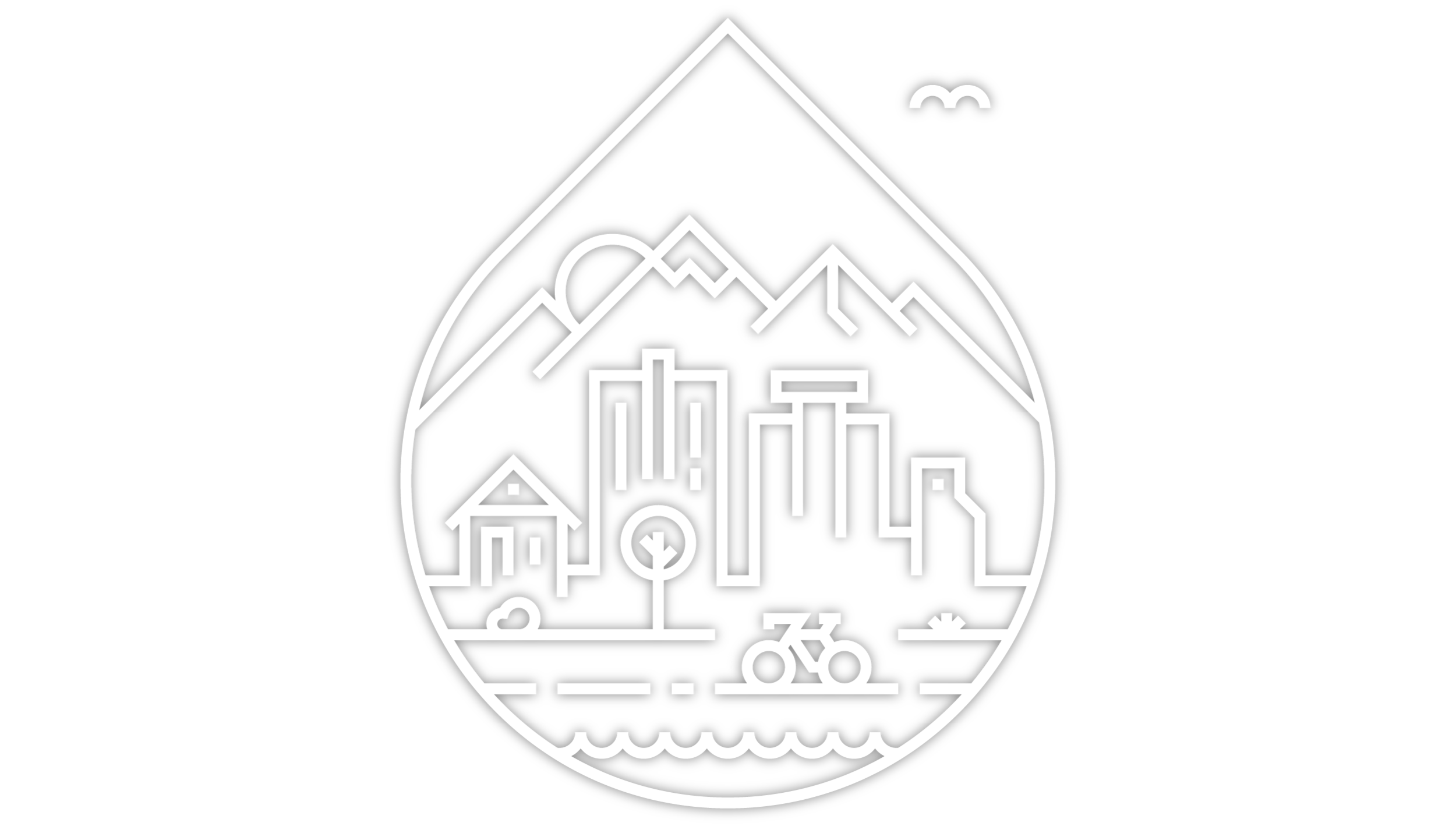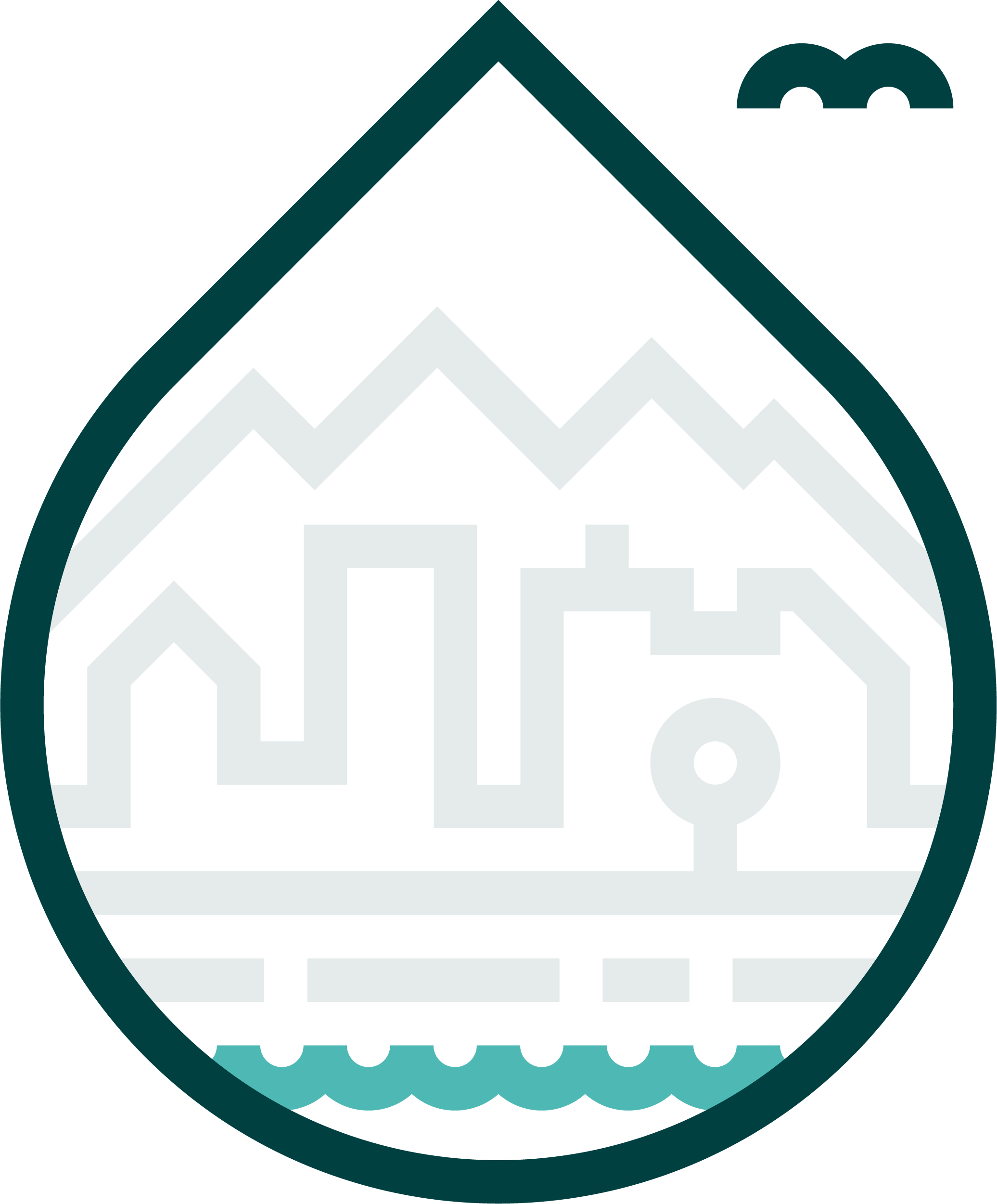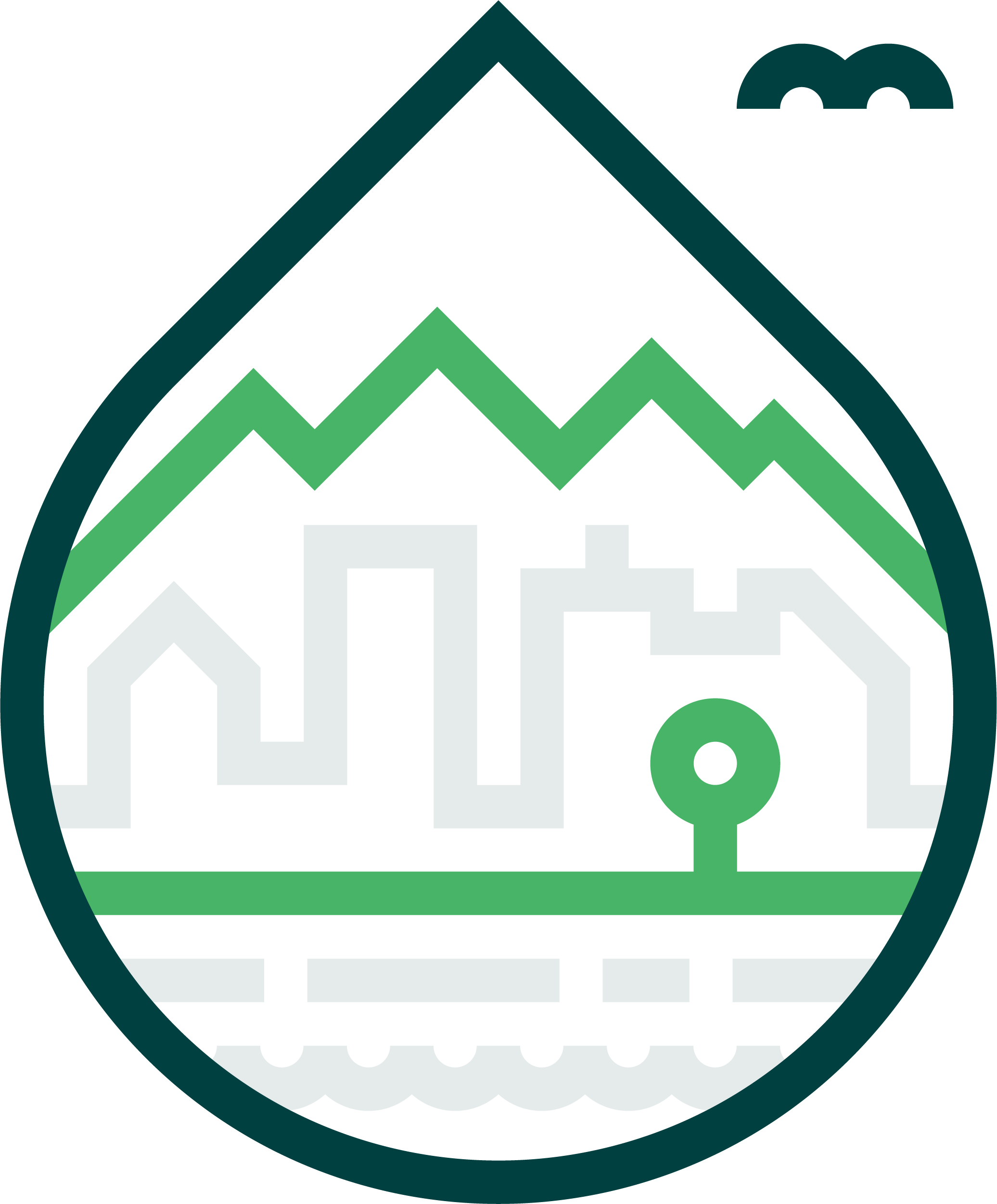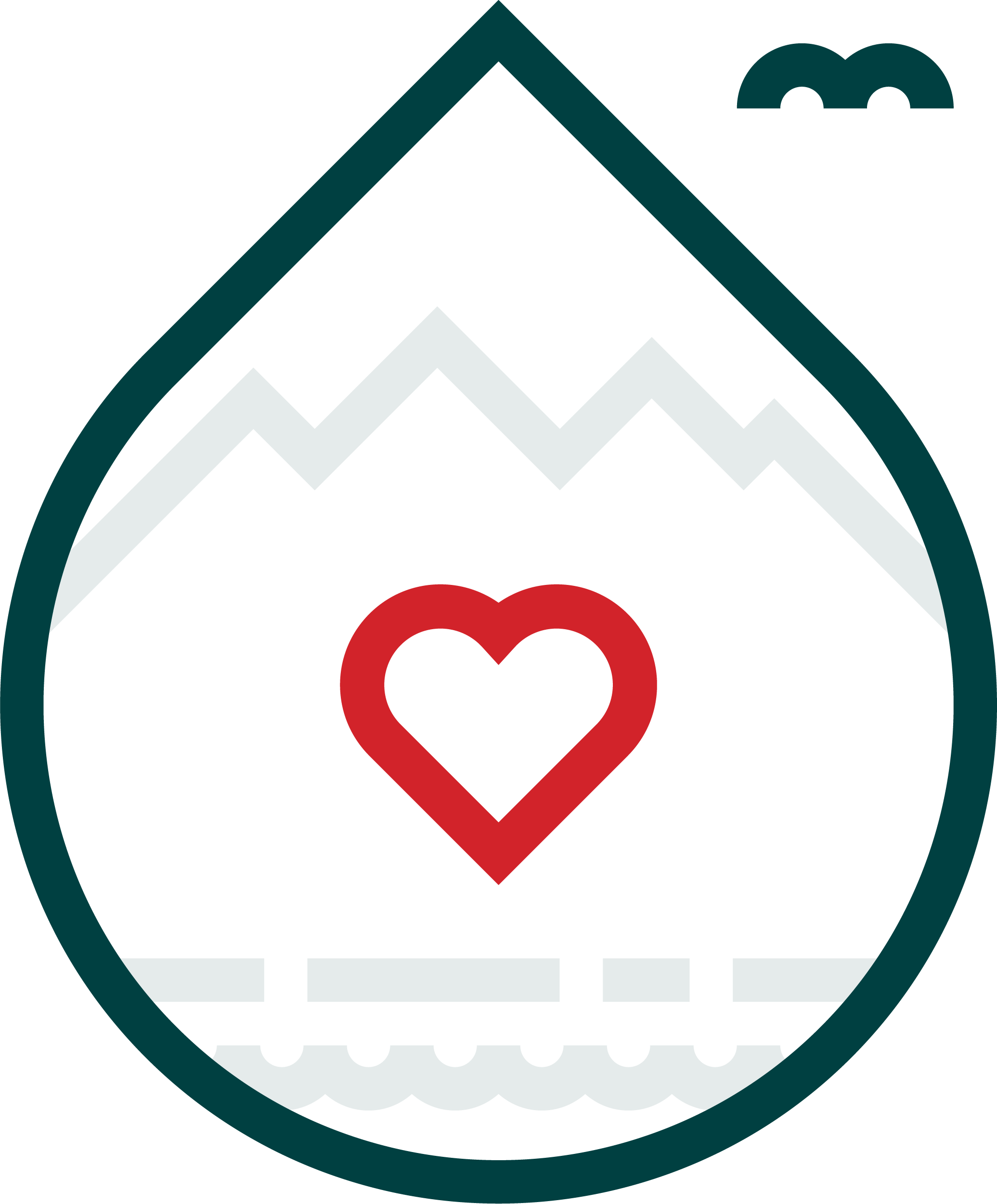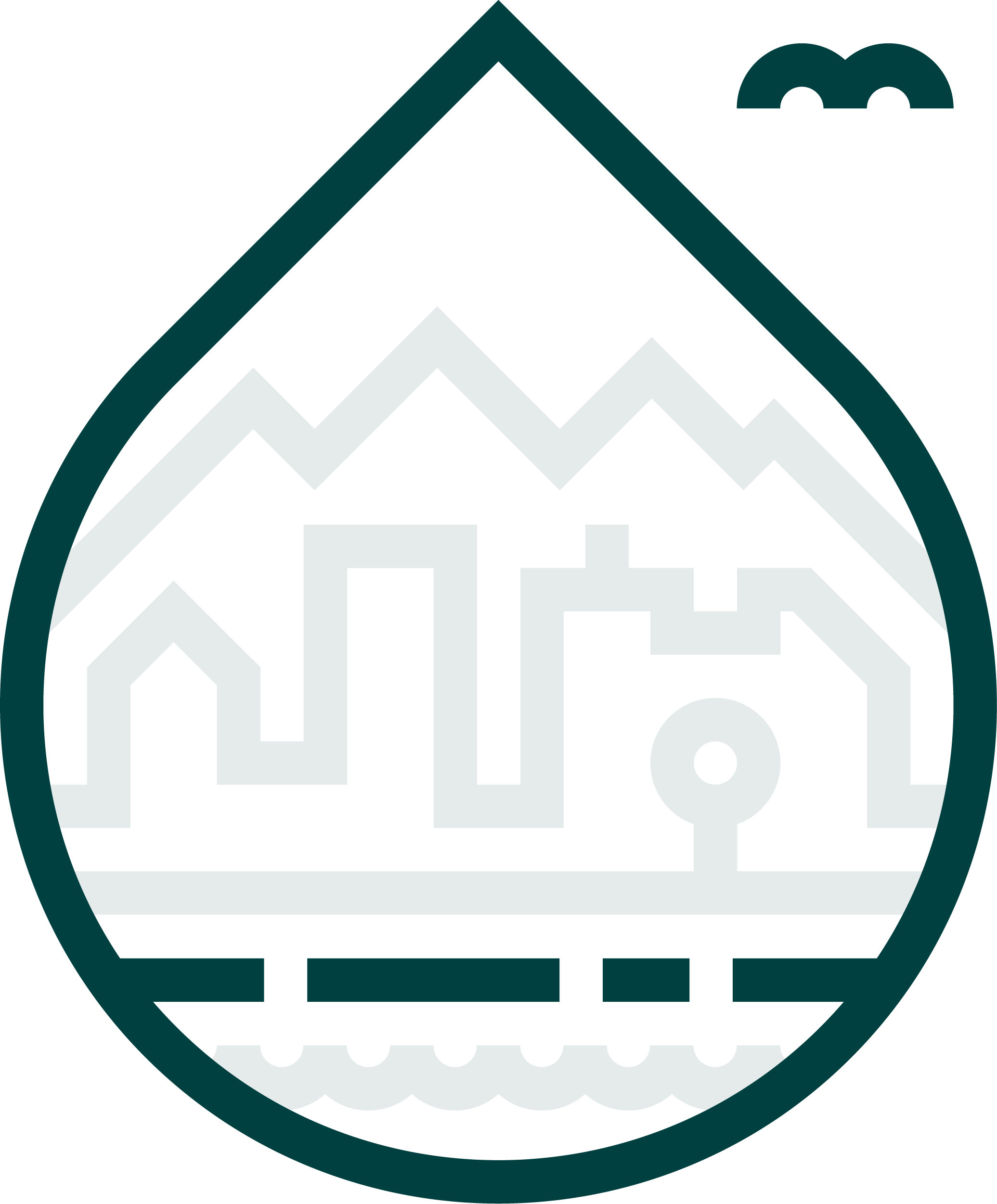
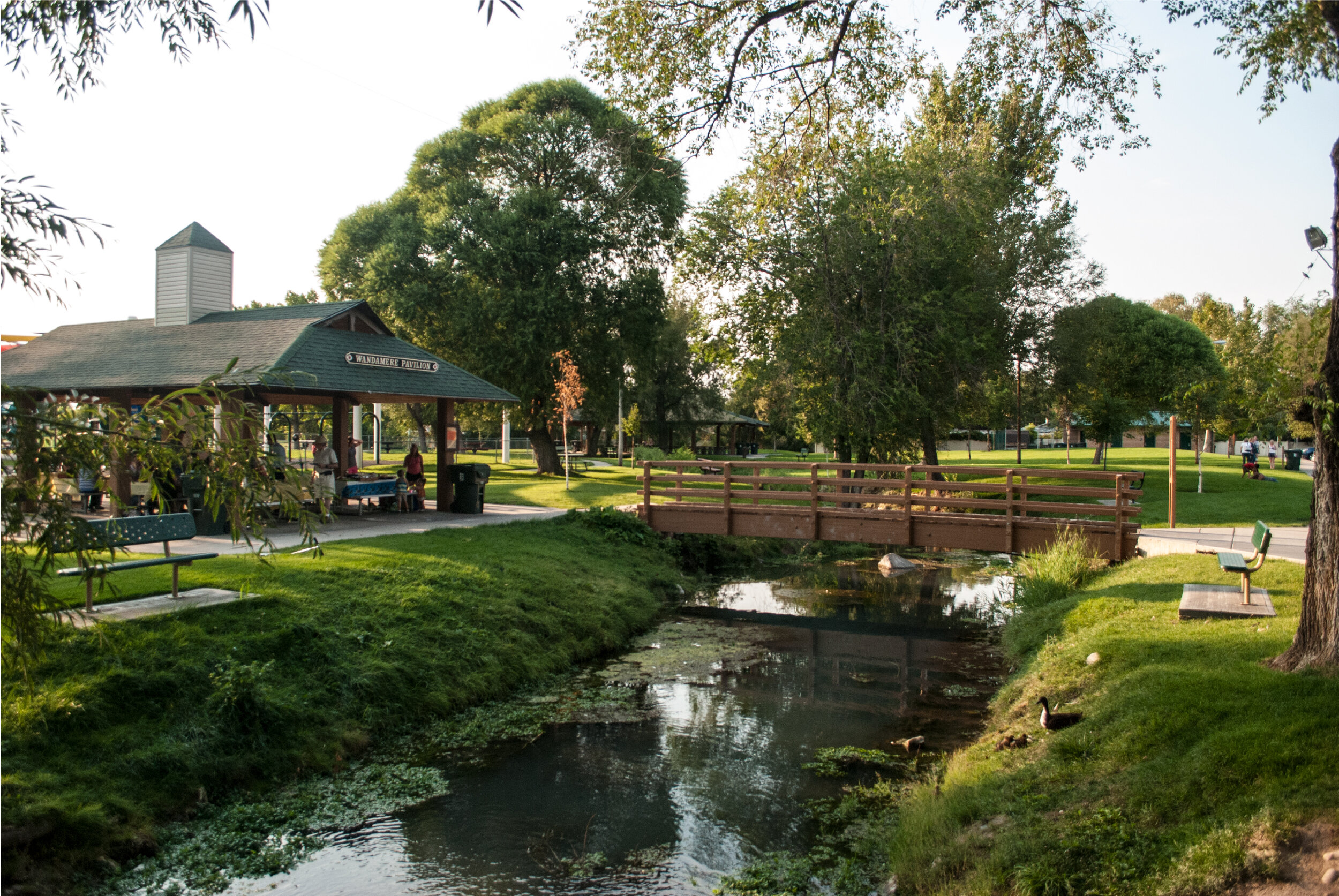
Connecting people through nature and our waterways



Mission
Inspiring a common vision, over the next 100 years, to revitalize our waterways, connecting people through greenways in the Salt Lake Valley.
Rediscovery and exploration lie before our residents, visitors, and partners along the Wasatch Front. The Seven Greenways Vision Plan will set in motion a community-supported framework. The Salt Lake Valley is facing an exciting future—a connected system of greenways that celebrate our waterways. We believe this resonates with virtually every person who lives, works, or visits our beautiful Valley. As Salt Lake County’s population grows an additional 600,000 people by 2065, this vision is increasingly critical to the protection and enhancement of our creeks. Revitalizing the greenways protects critical riparian habitat, preserves green and open spaces, and provides recreational and community benefits to this growing population.
The Seven Greenways Vision Plan represents hope, expressing how a vision over generations is brought to reality. This century-long vision will only be achieved through collaboration and collective will from elected officials, stakeholders, and community members, alike. The plan focuses on the sections of creek flowing from each canyon’s mouth to their confluence with the Jordan River. It addresses our desire to mitigate climate change and environmental injustices (poor water and air quality, drought, and the urban heat island effect) and requires a collective response and articulated message of benefits. This includes the revitalization of streams, enhanced bicycle and pedestrian infrastructure, catalyzed economic activity, increased climate resiliency, improved wildlife habitat, providing places for people to experience nature, and opportunities to learn about and enjoy water in our oasis on desert’s edge.
Core Elements
Toolbox
The toolbox guides municipalities, land managers, and organizations in the creation of the seven greenways, including design guidelines, best management practices, policies, funding, and partnerships. Examples included offer a range of options to address the varying conditions along each corridor.
Case Studies
Opportunity Area Walks

100 Years from now...
How do you imagine these interconnected greenways along our seven creeks in the Salt Lake Valley?
We’d love to hear from you. Fill out the form, and we’ll post it for others to see.

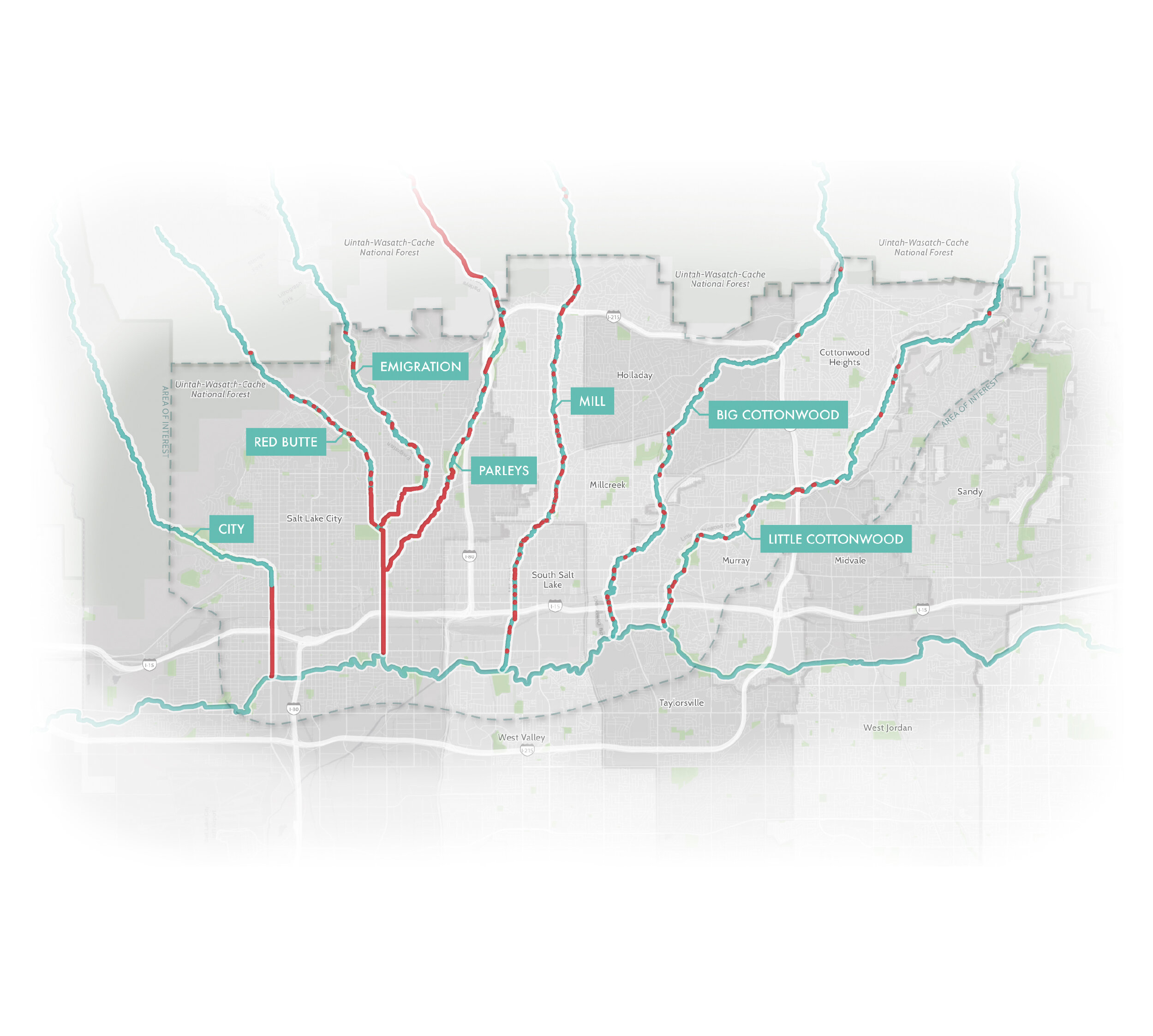
"WE BELIEVE THE SEVEN GREENWAYS VISIONING PLAN WILL REFLECT THE ASPIRATIONS OF OUR CITY AND THE ENTIRE Valley TO HAVE GREEN CORRIDORS Connecting every community to THE WASATCH MOUNTAINS."
— Mayor Cherie Wood, South Salt Lake

Process
Phase 01. Existing Conditions
(Fall ‘20 — Winter ‘20)
The historic and current conditions create the foundation for the Seven Greenways Vision Plan. Maps highlight creek corridors, water quality, ecology, land use, and recreation. Consensus on project goals was gained, and we identified data gaps and key opportunities. The Existing Conditions Report is a technical resource for governments to perpetuate the plan.
|
Phase 02. Community Visioning
(Winter ‘20 — Summer ‘21)
Public and stakeholder engagement provides the structure for the Seven Greenways Vision Plan. Inclusive methods and COVID-19 (Coronavirus) considerations helped reach underrepresented populations and ensured everyone’s safety in participating. A survey, pop-up and online workshops, and draft plan review identified priorities, opportunity areas, recommendations, and creative solutions. The Engagement Summary Report forms the framework of the vision.
|
Phase 03. Seven Greenways Vision Plan
(Summer ‘21 — Winter ‘21)
The final Seven Greenways Vision Plan highlights areas of opportunity in each of the seven greenways, recommends best management practices, possible policies for implementation, and includes a toolbox of design concepts and guidelines. The document is organized into four chapters:
Introduction - A summary of the plan document. It explores the seven creeks and cities in which they flow through.
Core Elements - An introduction our five core elements: water, nature, community, recreation, and urban. It summarizes the existing conditions of the seven greenways and serves as a guide for the vision.
Vision - An outline of goals, opportunity areas, and big ideas for each core element. It illustrates possibilities when applying goals in a significant, transformational way.
Toolbox - A guide to implementation of the seven greenways with design guidelines, best management practices, policies, funding, and partnerships.
Workshops with Salt Lake County and each municipality will prepare partners for implementation and to pursue projects.


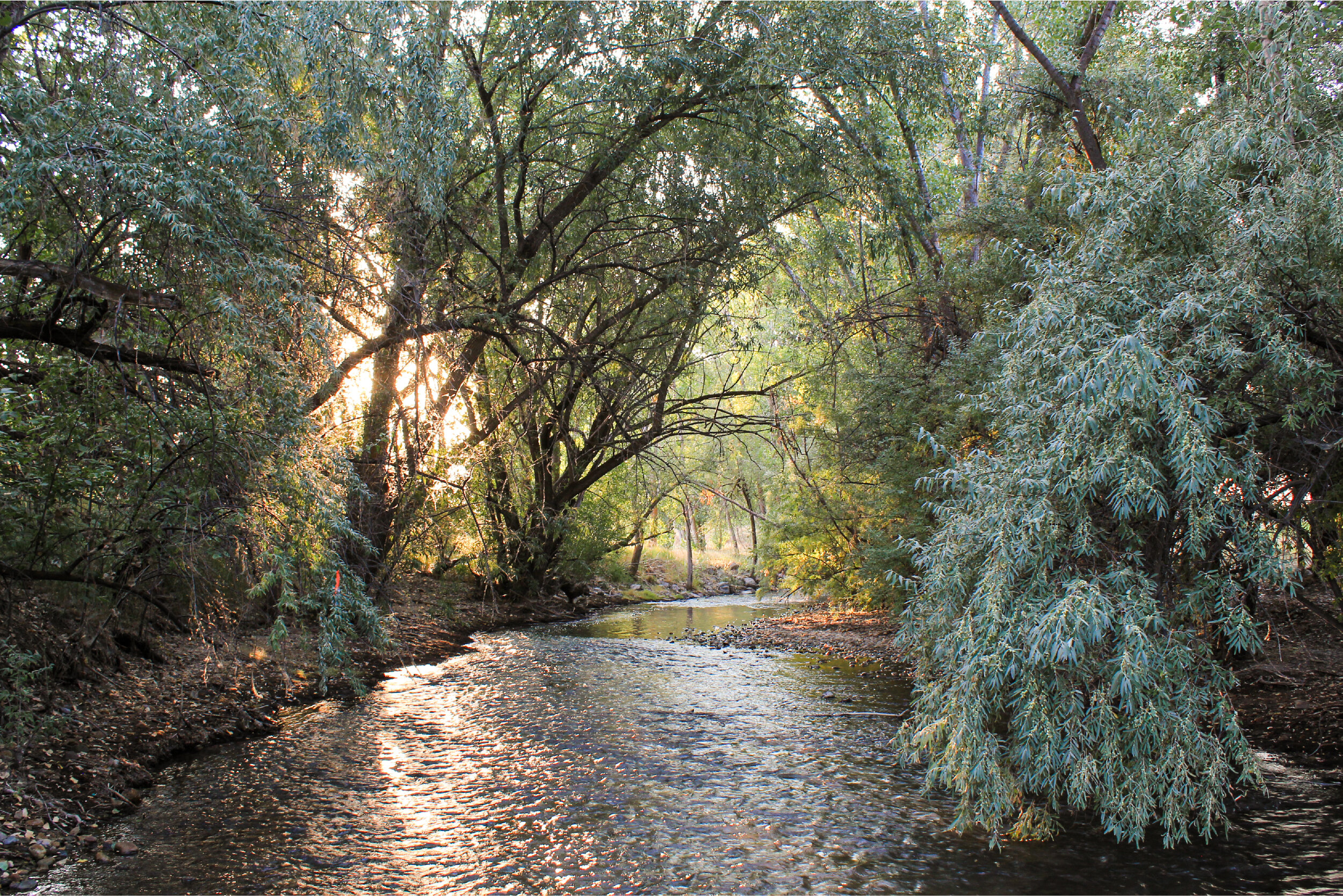
Greenway
A linear corridor located around a stream and adjacent land. They may be used to enhance bicycle and pedestrian access, generate economic activity, increase resilience to flooding, treat storm water through stream restoration and daylighting, and provide valuable habitat for wildlife.

Team
Project Management Team
Seven Canyons Trust
Brian Tonetti, Executive Director (Email)
Jess Lofland, Outreach & Communications Coordinator (Email)
Design Workshop
Anna Laybourn, Principal
Alison Bourquin, Project Manager
National Park Service Rivers, Trails & Conservation Assistance
Betsy Byrne, Landscape Architect (Email)
Salt Lake County
Jake Young, Planning Program Manager
Toby Lowry, Transportation Planner & GIS Analyst
Wasatch Front Regional Council
Megan Townsend, Community & Economic Development Director
Technical Committee
Cottonwood Heights
Samantha DeSeelhorst, Assistant Planner & Sustainability Analyst
Design Workshop
Anna Laybourn, Principal
Alison Bourquin, Project Manager
Holladay
Holly Smith, City Manager Assistant
Midvale
Alex Murphy, Planning & Zoning Director
Millcreek
Francis Lilly, Planning & Zoning Director
Rita Lund, Communications Director
Murray
Zachary Smallwood, Associate Planner
National Park Service Rivers, Trails & Conservation Assistance
Betsy Byrne, Landscape Architect
Salt Lake City
Marian Rice, Water Quality & Treatment Administrator
Nancy Monteith, Landscape Architect & Park Planner
Salt Lake County
Jake Young, Planning Program Manager
Toby Lowry, Transportation Planner & GIS Analyst
Walt Gilmore, Planning & Development Associate Director
Sandy
Dan Medina, Parks & Recreation Director
Seven Canyons Trust
Brian Tonetti, Executive Director
Jess Lofland, Outreach & Communications Coordinator
South Salt Lake
Sharen Hauri, Urban Design Director
Wasatch Front Regional Council
Megan Townsend, Community & Economic Development Director

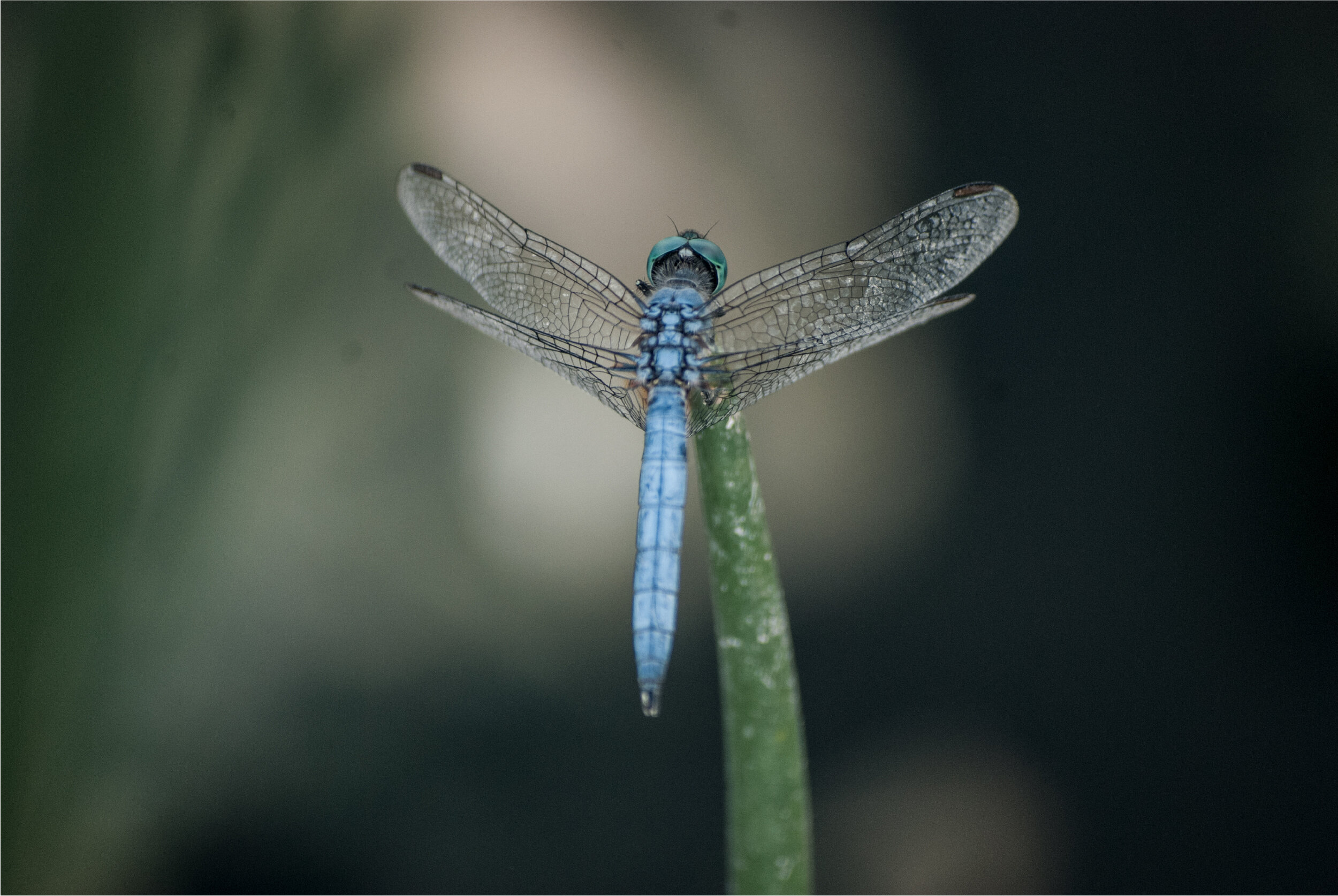

Partners


